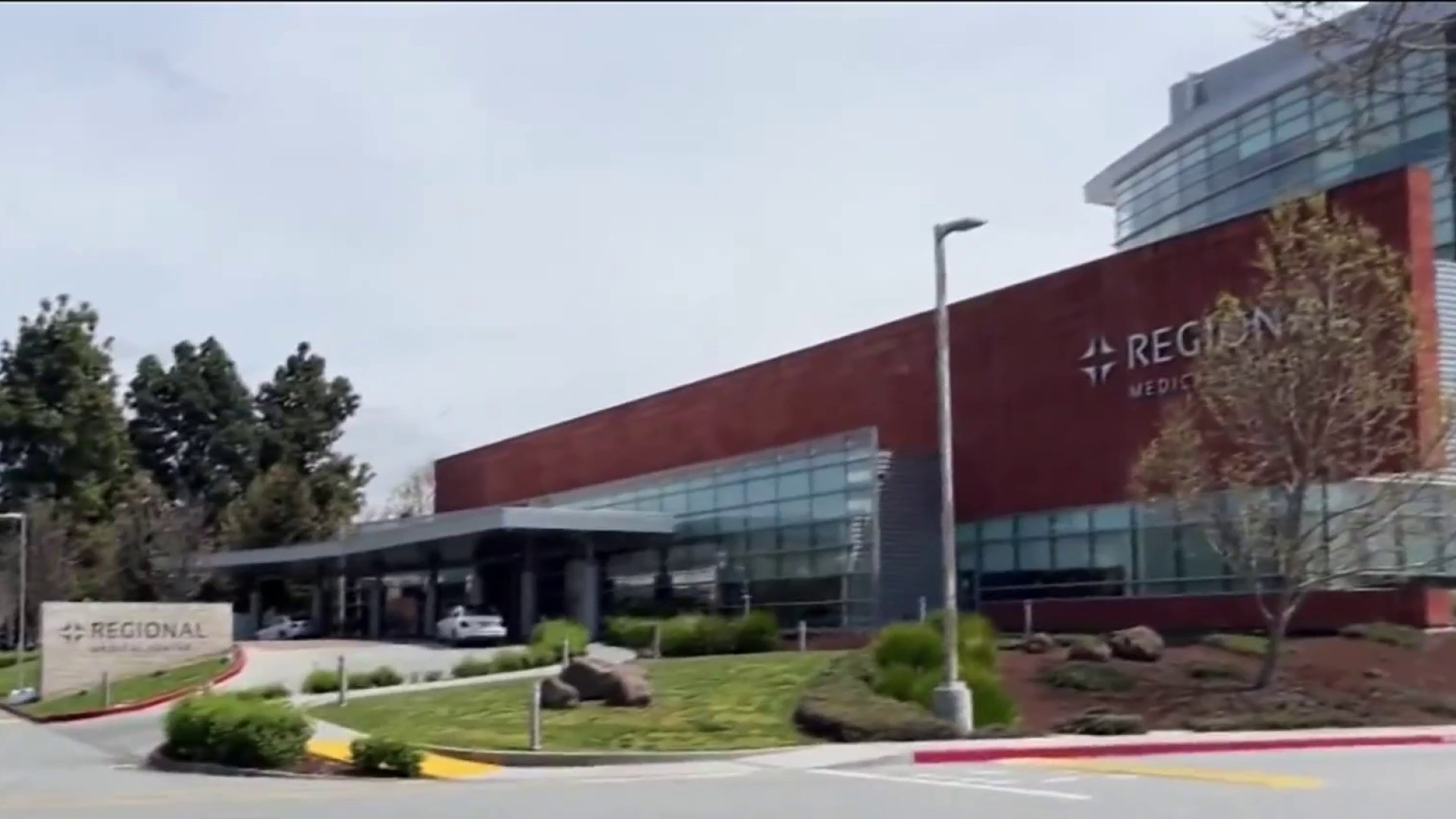Healthcare workers and residents in East San Jose are pleading with a hospital group to keep what they call “critical services.” Ian Cull reports.
Healthcare workers and residents in East San Jose are pleading with a hospital group to keep what they call “critical services.”
For months now, there’s been a campaign to keep the trauma center open at the Regional Medical Center of San Jose.
In July, regional said it would stay open but would downgrade from a level 2 to a level 3 trauma center.
On Wednesday, healthcare unions and patients said that’s not good enough and means certain sub-specialty doctors will be on-call instead of on site and ready.
“So if you have a heart attack, am I going to bring you here and wait for you to show up 20 to 30 minutes after you get called in? Or am I just going to pass you by and go to the next hospital?” said Gabriel Hernandez with the “Si Se Puede Collective.”
The group held a small rally outside Good Samaritan in San Jose because it’s owned by HCA Healthcare, the same company that owns regional on the city's east side. They fear what it could mean if they lose those services and have to spend crucial minutes being transported to another hospital.
San Jose resident Aaron Resendez said he was treated for a stroke at Regional.
“My stroke wasn’t that bad because I got to the hospital on time. The hospital that is in my neighborhood,” he said.
San Jose City Councilman Peter Ortiz threw his support behind the group on Wednesday, claiming it’s a money grab by the hospital.
Get a weekly recap of the latest San Francisco Bay Area housing news. Sign up for NBC Bay Area’s Housing Deconstructed newsletter.
“It’s frustrating to see that despite a record stock price in June, HCA Healthcare is divesting from Regional Medical Center. Instead, they’re funneling investments into a more profitable neighborhood and a more profitable hospital here at Good Samaritan,” he said.
A Regional Medical Center spokesperson responded to claims of inequity on Wednesday, saying that Regional was retrofitted and expanded years ago, ahead of Good Samaritan.
As for the changes at the trauma center, it will move down to a level 3 on August 12.
The spokesperson said trauma patients will be triaged in a timely manner, just like they have in the past. They added that Regional will still be able to address the needs of 97% of stroke patients with the remaining cases managed and transferred to acute care providers.



